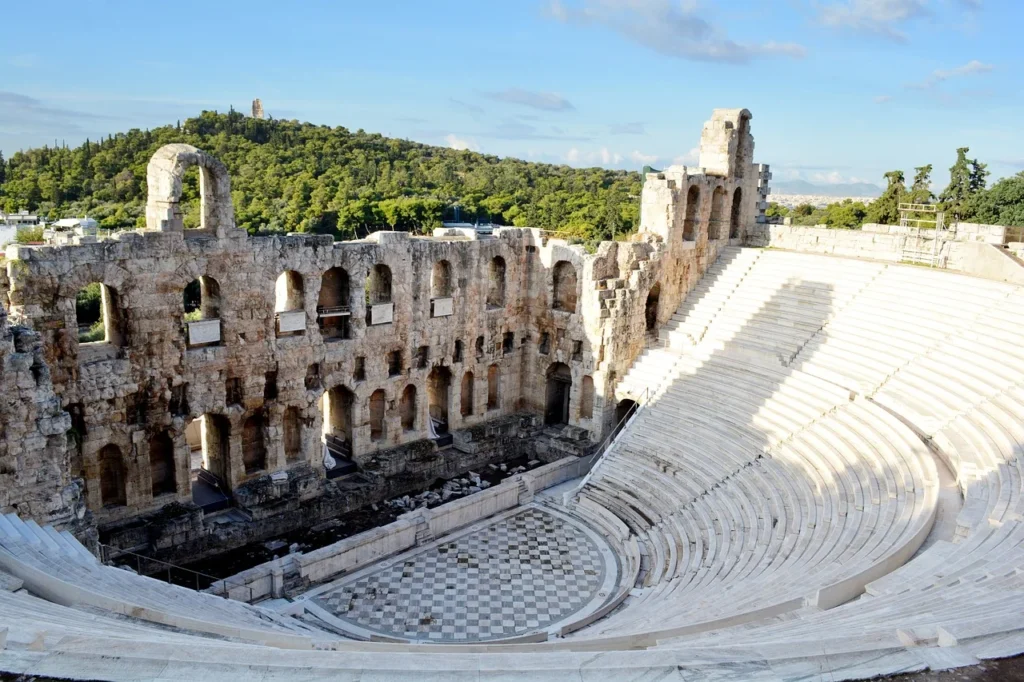Theater of Dionysus in Athens
The Theater of Dionysus in Athens is an ancient marvel nestled on the Acropolis’s slope. It is a testament to Greek theatrical brilliance. Constructed in the 5th century BCE, it became the cradle of drama, hosting legendary playwrights like Aeschylus and Sophocles. With its semicircular design, exceptional acoustics, and capacity to captivate thousands, it played a pivotal role in the development of theater.

Theater of Dionysus in Athens
The Theater of Dionysus, nestled on the southern slope of the Acropolis, remains an enduring testament to ancient Greece’s theatrical prowess.
Historical Significance:
Built in the 5th century BCE, the Theater of Dionysus stands as one of the world’s oldest theaters, with an intriguing history woven into its very stones.
The Birth of Drama:
This theater played a pivotal role in the development of dramatic arts. During the Dionysia festival, playwrights like Aeschylus, Sophocles, and Euripides showcased their tragedies and comedies, shaping the foundations of Western theater.
Design and Architecture:
The theater’s design, with a sweeping semicircular seating area, offered excellent acoustics and panoramic views of the stage. Its capacity to hold thousands of spectators attested to the grandeur of ancient Greek performances.
Chorus and Orchestra:
The orchestra, a circular area in front of the stage, was where the chorus performed. Actors, donned in masks and costumes, delivered riveting performances that blended music, poetry, and dance.
Renovations and Decline:
Over time, the Theater of Dionysus underwent several renovations, adapting to changing tastes. Unfortunately, as the Roman Empire grew in influence, the theater gradually declined.
Legacy:
Despite its decline, the Theater of Dionysus remains a symbol of artistic achievement and cultural significance. Its legacy endures through the works of playwrights and the profound impact it had on the world of theater.
In conclusion, the Theater of Dionysus in Athens remains a cultural treasure, forever linked to the birth of drama and the enduring legacy of ancient Greek theater.
